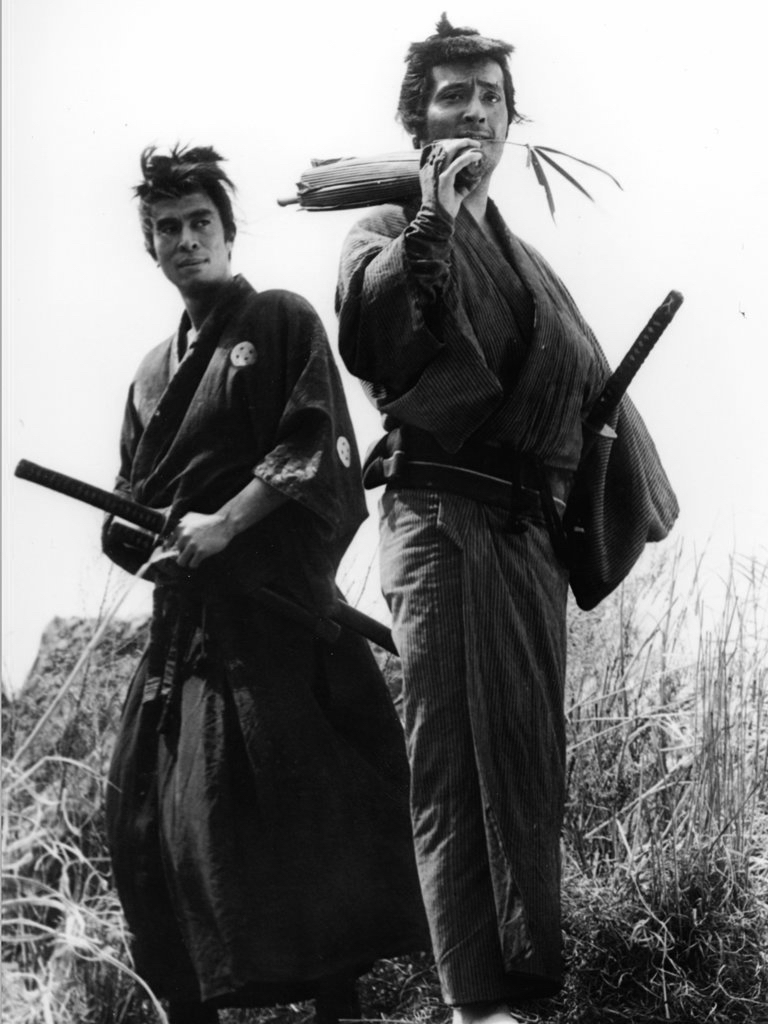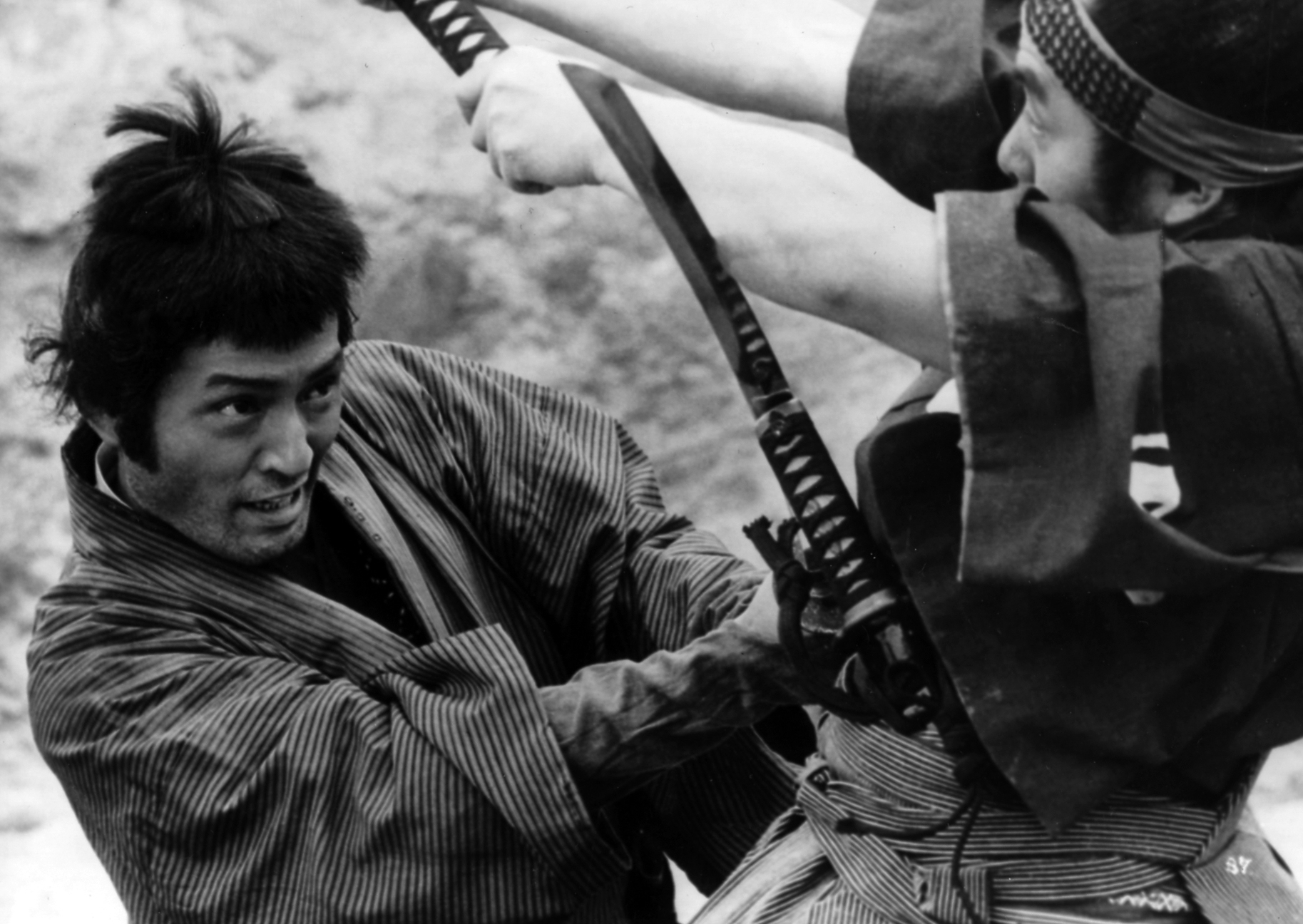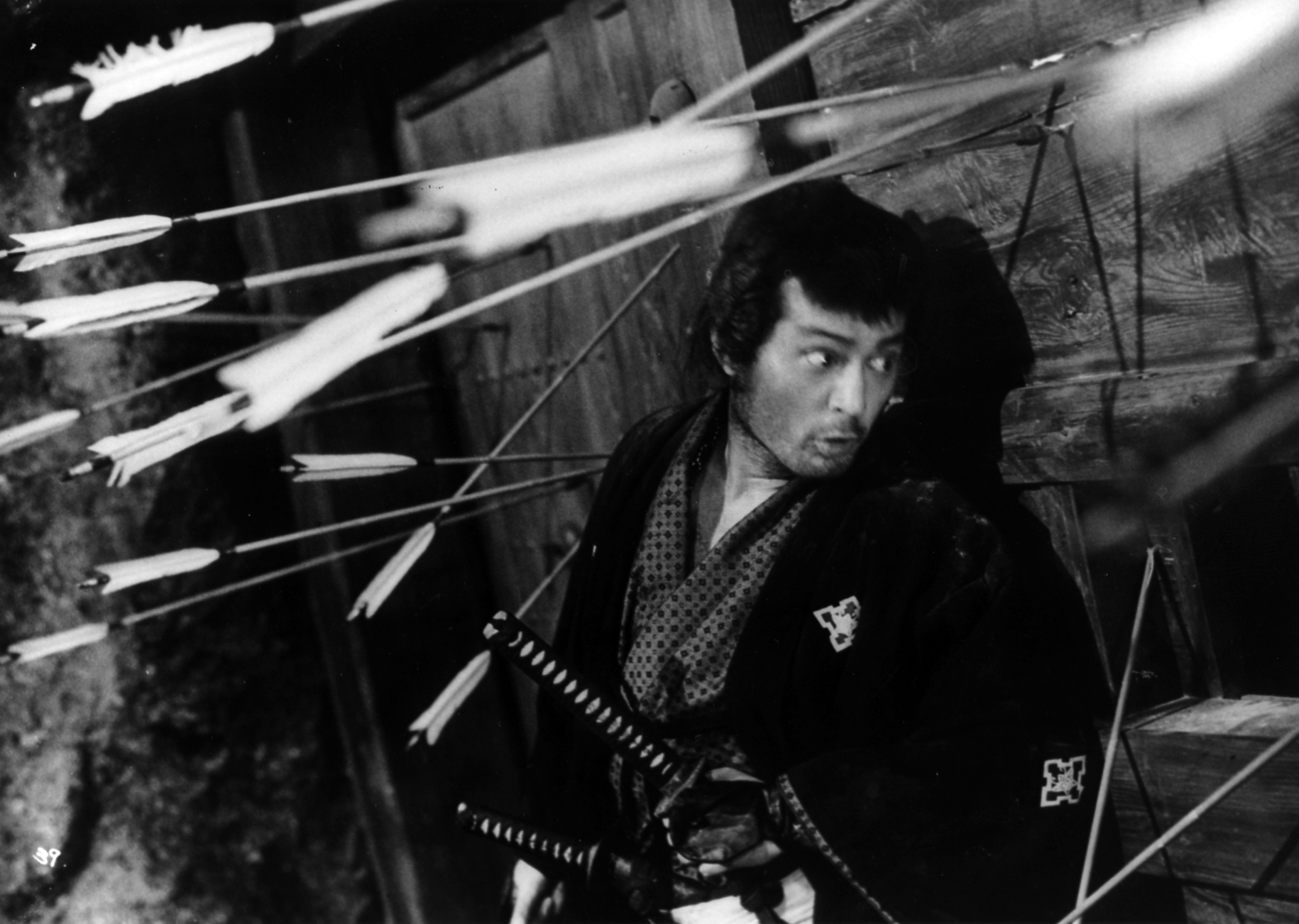
Japan Society has recently announced its autumn line-up for Monthly Classics, that includes a 35mm screening of the film written and directed by Kihachi Okamoto: Kill!. This is a satirical chambara — a sub-category of the Japanese period drama known as jidaigeki — that is characterised by duels just like Western and swashbuckler films.
The story is set in the spring of 1833, during the Edo period under the rule of the Tokugawa shogunate. The year coincides with the Tenpō era, defined by famine, economic instability and consequent dissatisfaction with government. Within this historical setting, in a dusty and windswept wrecked little village, in the desolated outskirts of the Joshu Province, two characters make their appearance.
Hanjiro Tabata (Etsushi Takahashi) is a farmer who wants to be a samurai, whilst Yagenta Hyodo, better known as Genta (Tatsuya Nakadai), was once a samurai but is now a yakuza.
Both have not eaten for days and the pursuit of food and a chicken allows them to get acquainted with each other. This first encounter unites them in an unexpected adventure as they become embroiled in a plot to assassinate the local clan leader. Genta and Tabata end up on opposite sides of this intrigue when seven samurai assassinate their chancellor. Although these men, led by Tetsutarō Oikawa (Naoko Kubo) rebelled with the support of their superior, Ayuzawa (Shigeru Kōyama), he turns on them and sends members of the clan to kill them as outlaws.
Thus, Genta and Tabata find themselves tangled in the political games that incentivises an ongoing slaughter.

Kihachi Okamoto’s Kill! is a cleverly entertaining take on the same novel that inspired Akira Kurosawa’s Sanjuro: Nichinichi hei-an (Peaceful Days) by Shūgorō Yamamoto. The lightheartedly western music score by Masaru Satô enhances the parodic tone, as the images reference earlier samurai films and also evoke subsequent pictures that were clearly inspired by Okamoto’s filmography — including Tarantino’s Kill Bill films. This is blatant in the splatter slapstick fighting sequences, where swords soar and chopped-up fingers fly in the air.
The improbable duo shows two sides of the samurai code of conduct: the Bushido. Hanjirō Tabata — whose surname means paddy fields and whose characterisation provides many hints of his passion for the Earth — wants to become a samurai because he idealistically believes it can give meaning to his powerless existence. Genta, instead, who has experienced it firsthand is disillusioned with the samurai lifestyle, to the extent he gave it up to become a vagrant. Despite their opposing visions, both wanderers epitomise transience channelling to audiences a meta-samurai experience.
The film does not exacerbate only the traditional hostilities that existed in Japan’s feudal era, but also the ones applicable to the year of its release, 1968, when the world was protesting against state militaries and bureaucracies. The social criticism in Kill! resonates also today: a time of warfare and global conflicts. In fact, the film’s critique towards man’s corrupted, self-serving and warmongering nature applies notwithstanding the time or place, as the theme keeps emerging throughout the narrative that a man must be ready to “Kill!”

The two ronins create a formidable couple, where the brains of dexterous Genta with the muscles and ethics of goofy Hanjiro provide a farcical commentary about the universal clichés we may find in the different layers of society. There is a thorough and satirical deconstruction of archetypes in Kill!. The film dismantles the oppressive force, held by those who run society, as much as it unveils the various prototypes of mankind, that share one common trait: fickleness.
After over half a century from its first release, the genre blender quality of Kill! makes this movie stand out from other Samurai films. As drama, dark comedy, and action coalesce —with the purpose of an insightful cynical mockery — what comes forth is a comically exaggerated exploration about death, honour and loyalty.
Kill! will screen at Japan Society on Friday 2nd September at 7pm.

